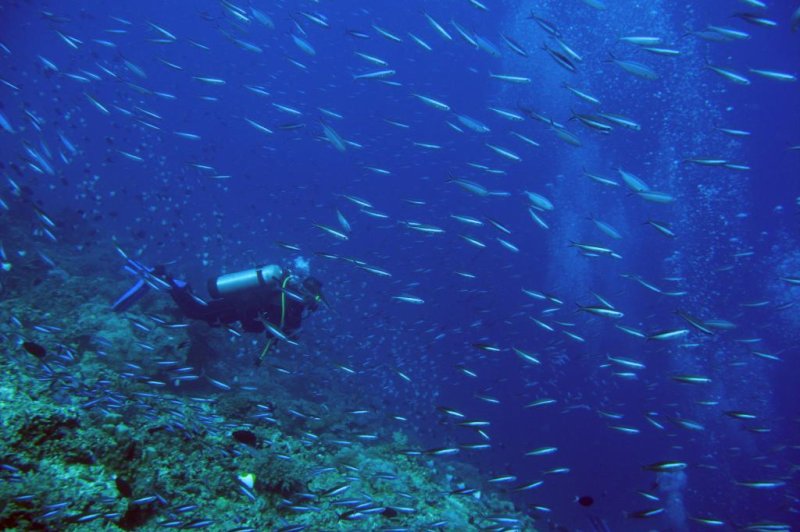New research suggests some fish are better at quantity discrimination -- like choosing between the protection offered by two differently sized shoals -- than others. Photo by Dennis M. Sabangan/European Pressphoto Agency
PADUA, Italy, Dec. 5 (UPI) -- Just as individual humans differ in their mathematical abilities, individual guppies differ in their quantitative abilities. As a series of experiments showed, some guppies are more adept than others at differentiating between different quantities.
The ability to discriminate between larger and smaller quantities could prove useful in a variety of environmental circumstances -- pursuing divergent groups of prey or eluding differently sized predators, for example.
For guppies, quantitative ability is perhaps most relevant to their "protection in numbers" survival strategy. Like many small or medium-sized fish, guppies gather and travel in shoals.
To test whether guppies can distinguish between larger or smaller shoals, Tyrone Lucon-Xiccato and Marco Dadda, researchers at Italy's University of Padua, presented 26 guppies with three quantity discrimination tests.
The first test saw individual guppies introduced to a new tank. The tank featured no areas of refuge, but was inhabited by shoals of four and six fish. In a second test, scientists presented individual guppies with differently sized foraging opportunities, forcing the fish to choose between four or six food items. In a third, guppies were offered differently sized bites of food.
Fish who joined the larger of the two shoals also ate the larger of the two bites of food, but weren't always able to properly differentiate between the larger and smaller foraging opportunities. The findings suggest guppies differ in their quantitative abilities, but use surface area as their mathematical cue and are unable to count exact numbers.
The findings -- detailed in the journal Behavioral Ecology and Sociobiology -- revealed some guppies to be better at the anti-predator test and others at the two food tests.
"This trade-off is likely to have a profound impact on the fitness of individuals, with some gaining advantage from their cognitive abilities that confer defence against predators, while for others it improves their foraging success," Lucon-Xiccato said in a news release.
"To date, the existence of similar trade-offs in cognitive performances has received very little attention in animals, even though these constraints might be more common than previously believed," concluded Dadda.















